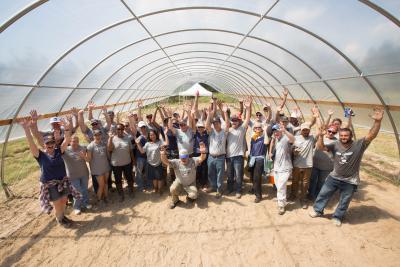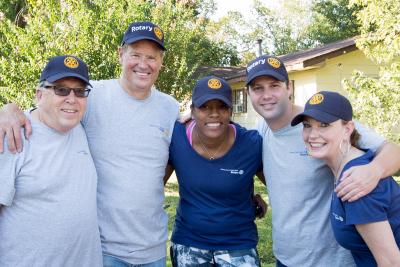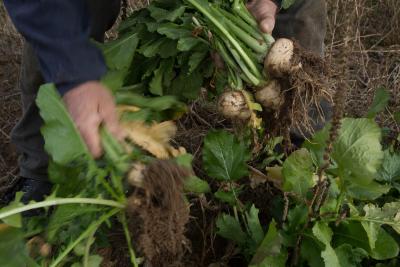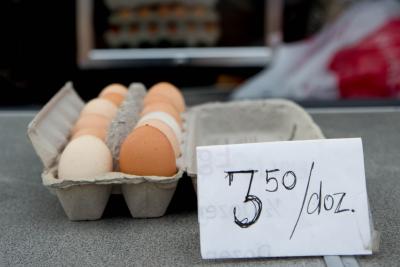 Claudine Ribeiro talked to us about the work done by the Johannesburg Parent & Child Counselling Centre. The amount of work they do is extraordinary and the number of schools that want to avail themselves of their services fast outstrips the resources, both financial and peoplewise.
Claudine Ribeiro talked to us about the work done by the Johannesburg Parent & Child Counselling Centre. The amount of work they do is extraordinary and the number of schools that want to avail themselves of their services fast outstrips the resources, both financial and peoplewise.What did surprise me was how dependent they are on volunteers which also creates problems as
many students who assist are not going to be around for very long.
It's an extremely worthwhile organisation that has been around since the 1940's.
Also visting us was an intern from the JPCCC, Emelda Ralf.
Jean Bernardo would like to know how many are attending the braai at the Youth Leadership Course on Sunday 8th October.
This Week
Our speaker is Brooks Spector on The Next Election.
Spector settled in Johannesburg after a career as a US diplomat in Africa and East Asia.
He has taught at the University of the Witwatersrand, been a consultant for an international NGO, run a theatre, and been a commentator for South African and international print/broadcast/online media, in addition to writing for The Daily Maverick from day one. He says he learned everything he needs to know about politics from ‘Casablanca.’
Maybe he's cynical about some things, but a late Beethoven string quartet, John Coltrane’s music and a dish of Pad Thai will bring him close to tears.
Rotary, Heifer program helps farmers provide healthier food to people in their own communities
Joe Carr bends over to pluck a handful of smooth, dark-green leaves, using a pocketknife to prune weak spots before bundling them with a rubber band and dropping the bunch into an orange crate.
Eight neat rows of vegetables line the ground under a tunnel of greenhouse plastic, supported by a series of steel hoops.
“I got a little bit of bok choy here. It’s a favorite of a lot of the customers. Generally, I can get about $2 a bunch,” Carr says. “These are totally organic, no chemicals whatsoever, totally healthy, leafy green, and all the vitamins that go with it.”
Volunteers from Rotary and Heifer International built the hoop house, also known as a high tunnel, to let Carr extend his growing season, getting an early start on crops like bok choy and tomatoes.
Carr is one of 24 farmers scattered across central and southern Arkansas who are engaged in small-scale sustainable agriculture to grow organic produce, filling an increasing demand for locally grown food.
Heifer has been using the small-scale agriculture model for decades to alleviate hunger and fight poverty around the world. The approach has the added benefits of being environmentally friendly and offering healthier food options.
That mission dovetails with Rotary’s mission to grow local economies and improve health, so it’s not surprising the two groups have teamed up on a number of occasions in the past 30 years to improve communities by helping families escape poverty.
The connection has strengthened because several Heifer employees are members of the Rotary Club of Little Rock, Arkansas, USA, the city where Heifer has its headquarters.
“Our values line up very well,” says Ardyth Neill, a member of the Little Rock club and president of the Heifer Foundation. “With Rotary, it’s Service Above Self and helping to serve others. Heifer has been working with farmers to be accountable, pass on their gifts, train other farmers, and work together in community. It’s learning to share and care, basic things that work well together.”
Sustainability is the latest trend
Sustainable agriculture, a hot trend globally, refers to a method of growing or raising food without harming the environment, while providing fair treatment for workers and supporting local communities.
In the United States and other developed nations, a lot of food production is controlled by large industrial operations, which produce cheaper food by focusing on a single crop and using specialized equipment to cut labor costs.
But advocates of sustainable agriculture say those operations can also damage the environment by using commercial fertilizers, heavy pesticides, and other chemicals.
The corporatization of farming has also contributed to the failure of smaller family farms, increasing the poverty rates in places like rural Arkansas.
In addition, people become more detached from their food.
Nationwide distribution networks have resulted in food deserts in urban areas, particularly in the U.S., England, and Australia, where poor neighborhoods have little access to fresh produce and instead rely on less nutritious fast foods and packaged products.
Small-scale sustainable agriculture, on the other hand, tends to benefit communities by keeping things local. The money you spend on food stays in your community and helps your neighbor. Farmers maximize land use by planting multiple crops that replenish the soil and reduce the need for fertilizers and pesticides. If needed, organic fertilizers are used that improve a plant’s root system.
And many nutritionists say fruits and vegetables grown closer to consumers’ homes keep more of their nutrients.
Consumers are increasingly aware of these health benefits, fueling the market for local produce.
“There’s a phenomenon going on, really nationwide, about people becoming more and more concerned and thoughtful about where their food comes from,” says Sharon Vogelpohl, a past president of the Little Rock Rotary club and a volunteer on the project. “I’m a mother of two. That’s something that I take very, very seriously.”Jordan Beard, another Rotarian involved in the project, says: “I think people see that they can change their habit around how they eat, and it can make a big difference in their life and health. It’s connected with the idea of a more active lifestyle.”
Farming around the world
The tools of small-scale sustainable agriculture look different around the world, but the principles are the same. Noel Mace, Heifer International’s program manager for Africa, explains that cooperatives play a crucial role in bringing together groups of farmers — many with both livestock and crops — and connecting them to markets.
“We are now developing more of a market-driven approach,” says Mace. “Historically, Heifer has spent a lot of time on how to bring poor farmers to a subsistence level where they can feed their families. But our mission is to end hunger and poverty, not to lessen it. Poverty is a big challenge without connecting to markets.”


How do we move you beyond a family-level production to participating with others in a market” that creates income and increases livelihood?
Heifer’s model also strives to increase women’s decision making and encourage groups to form common goals, because when a community faces poverty, everyone’s part in fighting it is crucial.
Africa has a strong dairy program, so much of Heifer’s work there flows out of milk. Tight groups of 15 to 20 farmers join with other groups in cooperatives that then have enough scale to access chilling plants and, ultimately, processing plants. The farmers then look to diversify further by using their milk co-op to sell avocados, lettuce, tomatoes, and other produce.
“If I am a consumer, I now can go to the co-op and buy milk, but also buy fresh fruits and greens, and I know it will have the same level of quality,” says Mace. “It’s really about marketing a brand, something I can rely on and know they will have when I go there.”
Mace believes the sustainable farming movement is driven internationally by a growing middle class that wants access to healthy food and can now pay for it.
“They don’t want the broiler chickens anymore with the huge breasts and giant legs. They want local poultry and are willing to pay two or three times more for it,” says Mace. “It creates a great opportunity for individuals to come together and produce poultry, vegetables, or fruits using sustainable methods and in a way this market wants.”





No comments:
Post a Comment